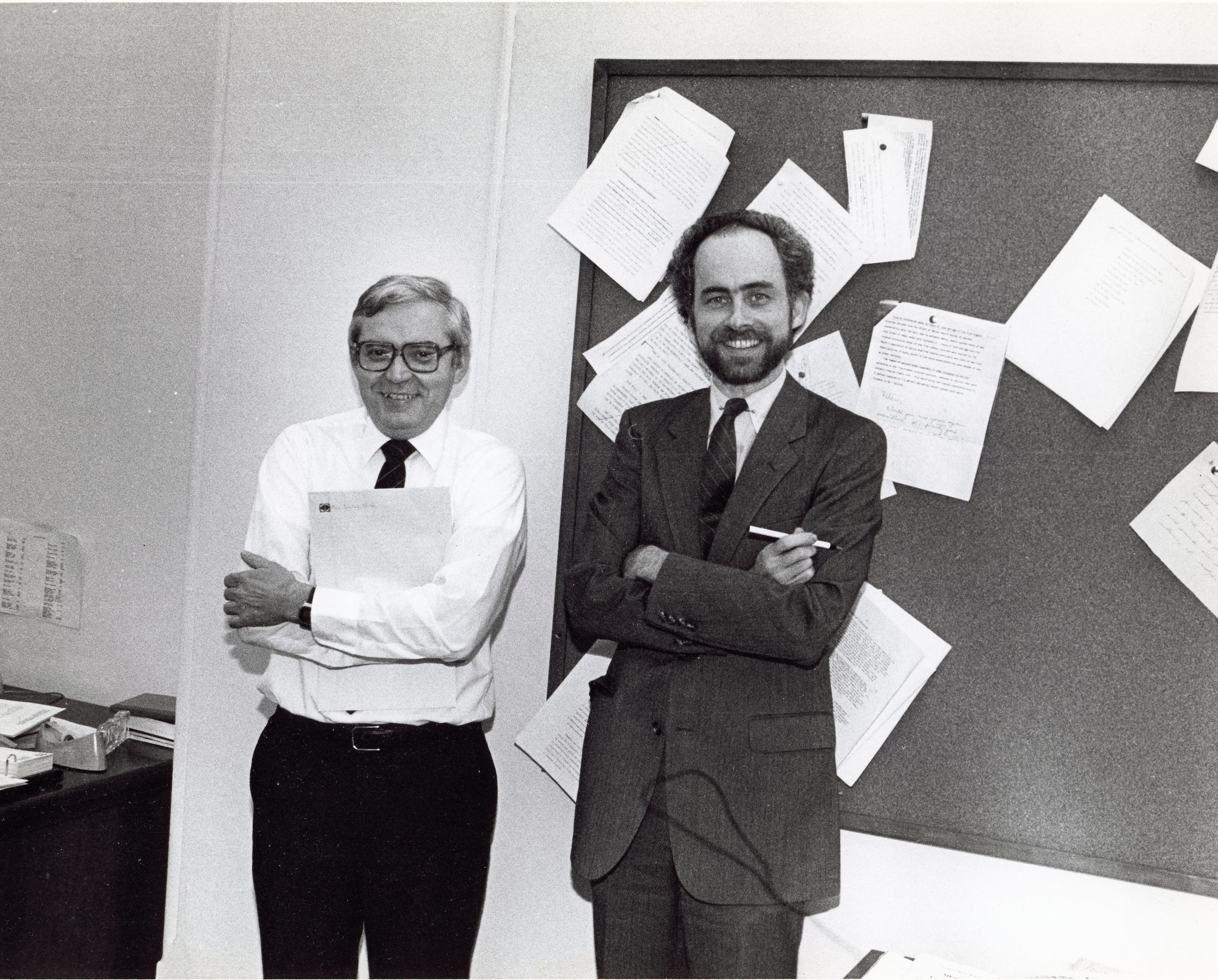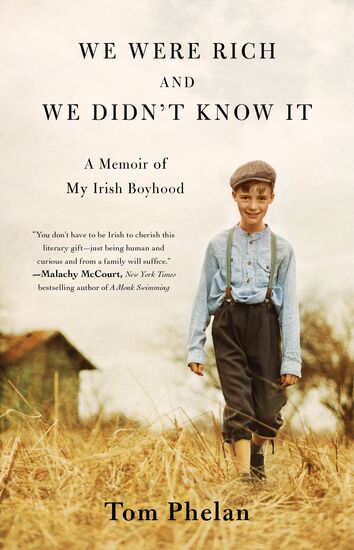Gov. Mario Cuomo stepped up to the mic at the University of Notre Dame on Sept. 13, 1984, just two months after he’d given an electrifying keynote address at the Democratic National Convention in San Francisco.
In his 2022 memoir “Cross Bronx: A Writing Life,” the New York governor’s speechwriter, Peter Quinn, recalls, “He read it deliberately, with none of the theatrics of the keynote. He spoke to the audience in the hall. He ignored the television cameras.”
It was a speech on abortion by a practicing Catholic who was also pro-choice. Notre Dame’s leaders had resisted pressure from conservatives to cancel it.
The previous year, New York’s Cardinal John O’Connor was asked by a reporter for a far-right Catholic publication if the governor might be excommunicated for his support for Medicaid funding for abortion. Quinn writes, “When instead of offering a firm rejection O’Connor hemmed and hawed, Cuomo was furious.”
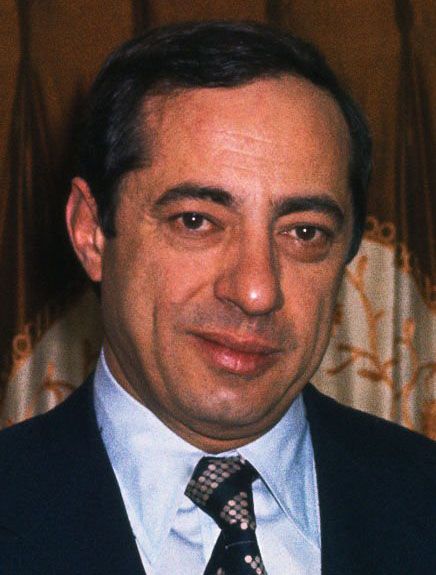
Mario Cuomo in 1977.
In some ways after 40 years, things have stayed the same – Church leaders, for instance, continue to upbraid Catholic politicians who are pro-choice.
In other ways, they’ve radically changed.
When Jesuit author the Rev. James Martin was a guest on the MSNBC “Morning Joe” show in the fall (invited to talk about his book “Come Forth: The Promise of Jesus’s Greatest Miracle”), Mika Brzezinski introduced the segment by citing a report that Pope Francis had criticized conservative American Catholics as being too fixated on abortion and sexuality without focusing on caring for the poor and the environment.
Co-host Joe Scarborough, a former Republican congressman and a Southern Baptist, kept with the theme, telling Martin that in his youth he thought the Catholic Church a “little too left of center,” but now with his Catholic friends and others he’s noticed a “radical shift to the far, far right.”
The Jesuit acknowledged that there was a “strong conservative, even reactionary part of the church who are opposing Pope Francis’s way of proceeding.”
So, for Catholics who lean left of center, are these tensions evident in this election year? Do the church’s leaders wield political clout? Is there a Catholic vote to be mobilized?
“Fewer and fewer Catholics are listening to them,” Quinn said of the U.S. hierarchy.
He argued just as the Church of England was once said to be the “Tory Party at prayer,” then in the U.S. the Catholic Church has increasingly joined the white Evangelical movement in being the “Republican Party at prayer.”
It’s certainly true that younger priests mostly identify as conservative both in theology and political ideology.
But this is not the case with the faithful as a whole when it comes to the ballot box.
“Catholics are split generally 50/50 in the past few elections, like the country at large,” said Eileen Markey, who teaches at Lehman College in the Bronx. “Catholics who are upper class and liberal – mostly whites – vote for Democrats. Catholics who are working class and liberal – many Latinos – vote for Democrats. Catholics who are working class and conservative vote for Republicans – also a number of Latinos. Catholics who are upper class and conservative vote for Republicans.
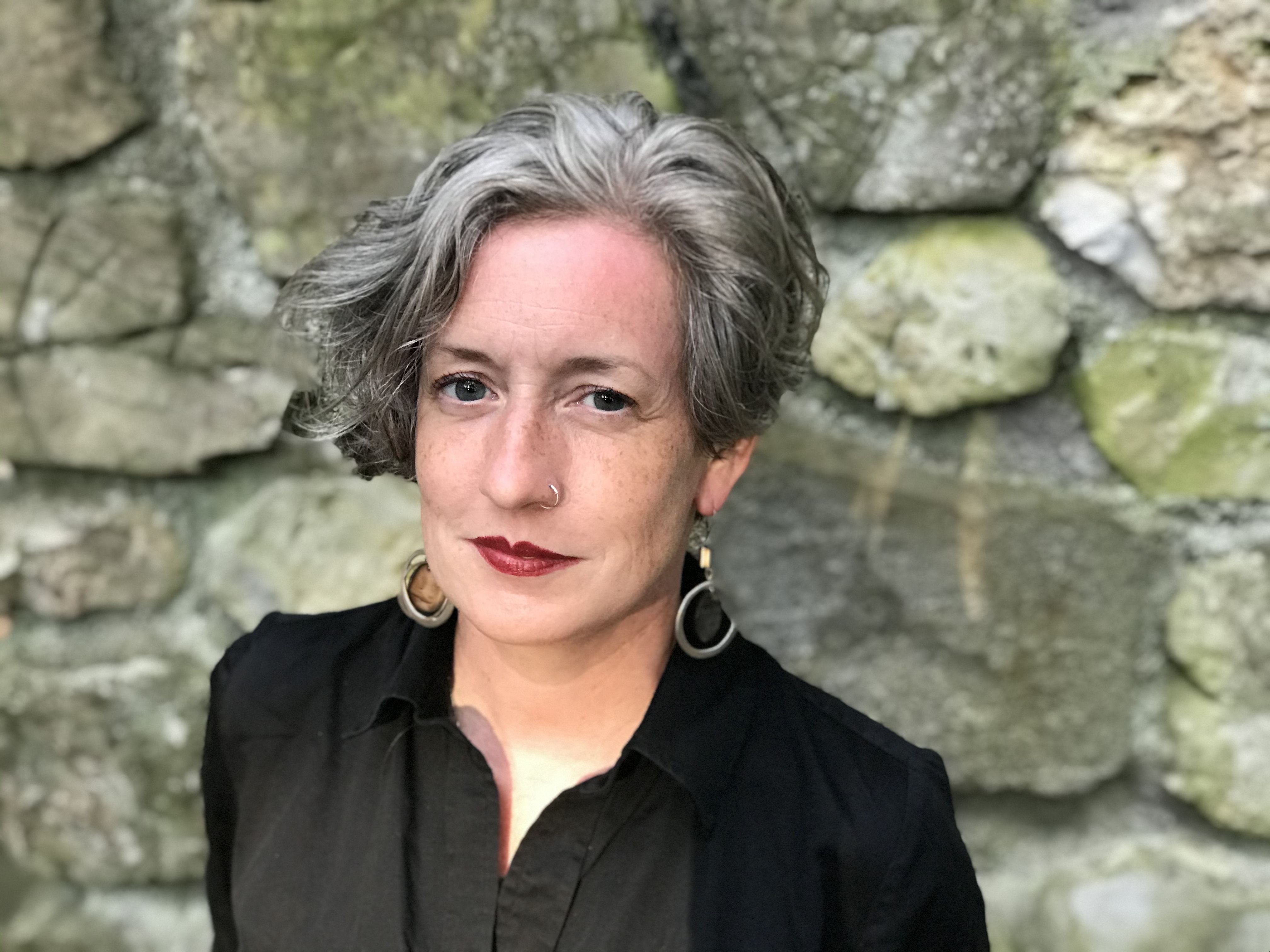
Eileen Markey.
“But all in all the read I get is that people vote according to their tribal politics, which often have to do with class, if not always economics, not some uniform, animating worldview shaped by their faith,” said Markey, who is the author of “A Radical Faith: The Assassination of Sister Maura,” a book that focuses on one of the four American missionaries murdered by the El Salvadoran military on Dec. 2, 1980.
The Rev. Kevin Madigan, a pastor at Our Lady of Good Counsel & St. Thomas More Parish who has a history of taking progressive stands, agreed. “There is no Catholic vote anymore,” he said.
“There are a lot of Trump supporters here,” he said of the parish on Manhattan’s Upper East Side, “but they don’t tell me they’re Trump supporters. Lower taxes is their big thing.”
They’ve less interest in the border or in cultural issues, the priest believes. Class and economic self-interest come first.
“I think a basic moral ethic is there,” Madigan said. “But I don’t think religion is the formation of people’s political views. Catholic voters were once pro-labor and more Democratic, and then they moved to the suburbs and became Republican.”
The Rev. Kevin Madigan. [Photo by Peter McDermott]
“What I see is people hold political or social beliefs and then seek justification for or endorsement of them in their church,” said Lehman College’s Markey. “People bring their politics to church not their faith to political choices. Which is to say: I think politics is the new religion, in the tribal, my team, lack of room for doubt kind of way.
“I don’t think it’s good for us spiritually or democratically, but I think that’s where we are,” she said.
‘Stupid’ president
Some anxiety can be seen in the liberal Catholic press about the growth of right-wing ideologies.
Commonweal magazine recently published a piece entitled “Will Trumpism Spare Catholicism?” Its subhead ran, “Emerging alignments are cause for concern.”
“The Strange World of Catholic Integralism and Christian Nationalism,” a recent report on religionnews.com, began, “In 2017, as Donald Trump settled into the presidency thanks in no small part to broad support from conservative Christians, a Vatican-approved magazine published an article bemoaning the ‘surprising ecumenism’ found among far-right Protestants and Catholics who sought a ‘theocratic type of state.’”
“There’s no legitimate teaching of Catholicism that justifies Christian nationalism,” Bishop John Stowe, who oversees the Diocese of Lexington in Kentucky, told religionnews.com in a phone interview. He described support for integralism, a Catholic theocratic ideology, “concerning.”
Catholic leaders, though, are more often in the news criticizing the Democratic Party. The liberal National Catholic Reporter, which is headquartered in Kansas City, had a news article on April 18 that began: “A Catholic bishop in Michigan vilified President Joe Biden as a ‘stupid’ Catholic ‘who is not living the life Jesus wants for him’ during a presentation after a celebration of daily Mass.”
The National Catholic Reporter said that other churchmen have castigated the president in the year he’s facing reelection. Washington DC Cardinal Wilton Gregory told the CBS Sunday morning show “Face the Nation” that Biden was a “cafeteria Catholic” who picks and chooses the parts of the faith that aren’t challenging.
And Springfield, Illinois Bishop Thomas Paprocki claimed that Biden made a “mockery of our Catholic faith” after he allegedly made the sign of the cross during a rally at which abortion rights were affirmed.
Leading American novelist Alice McDermott has taken the opposite position. In an Irish Echo interview in 2021 she argued that the Catholic Church lost an opportunity to speak out on the issue of suffering during the pandemic.
“Honestly, Joe Biden has come as close as I’ve seen to someone in the public eye speaking of the spiritual aspects of this thing we’ve just been through,” she said, not long after she and her husband and their three adult children had recovered from Covid.
Another Irish-American novelist, Mary Beth Keane, went public with her disenchantment with church leaders in a 2018 essay in Vogue, and withdrew from her Westchester, N.Y., parish.
In a 2024 interview in the Jesuit weekly magazine America, she spoke of how learning the catechism seemed to provoke a greater sense of questioning and skepticism. “I do think going to Catholic school, learning church doctrine, attending weekly Mass did turn me into a person who questioned things,” Keane said in the interview. “I think it helped me become a good critical thinker.”
Keane had wanted the same for her own children, but when the Philadelphia abuse report was in the news she hoped her local pastors in Westchester would tackle the subject directly from the altar or initiate a parish discussion. They did not.
Madigan is one priest who did address the Philadelphia report in a 2018 sermon. (The parish website has his Mass homilies going back more than five years here.)
“I like his sermons,” one parishioner who identified as a Republican voter told the Echo.
The pastor said he would prefer the church to move from the right to the center.
“The doctrines are passed down through the centuries by intellectuals, which are important, but the more important thing is not what you think but how you behave,” Fr. Madigan said.
Pope Francis’s view is “how you treat people day in, day out.
“The social justice message of Francis is totally in line with the Catholic position,” the pastor said.
Back in August, Madigan gave a homily that meditated upon the “Canaanite” woman’s challenge to Jesus, who in turn listened to her against the advice of the disciples.
“Today’s Gospel challenges us to follow the example of Jesus, to have a conversation with people who are different from ourselves, willing to have challenged some of the fixed ideas, biases and prejudices that we have inherited from childhood,” Madigan said. “The question is, will I be willing to reject any inherited notions that deny people their full human dignity, whether they be people of color, immigrants, gay, trans, whatever? Again, Jesus changed His mind; am I willing to change mine?”
Political realities
In 2010, when a pastor at St. Peter’s in Downtown Manhattan, Madigan took a position in support of the building of the Islamic cultural center a few blocks north of the site of the destroyed World Trade Center. The priest, a 9/11 survivor, felt that the obvious position for the New York archdiocese would have been to support the Islamic project, but seeing the conservative backlash to the “Ground Zero Mosque” in the city and nationally, it opted for a “reconciler” role between two sides.
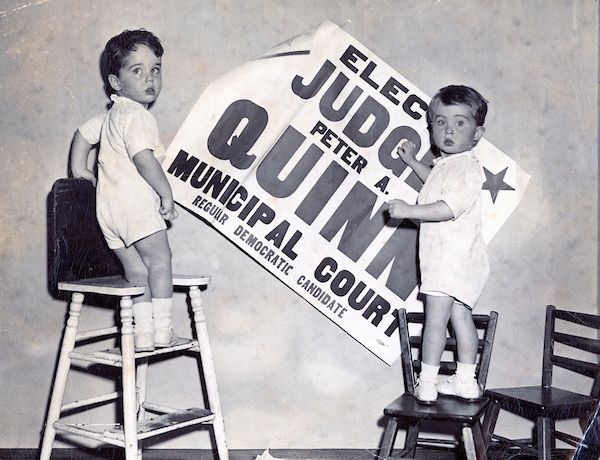
Twins Tom and Peter Quinn, 2, during their father’s 1949 election campaign.
It was a perfect example of the church putting political realities and public opinion ahead of principle.
Back in 1984, New York’s governor hoped to clarify the position of a practicing and committed Catholic, one who was also an elected politician in a pluralist democracy, taking a pro-choice position.
Not imposing one’s views on people who adhere to other religions and or other Christian denominations was a theme of the speech.
“He put it to them,” the essayist and novelist Quinn said recently. “One of the interesting things about the ’84 speech was that nobody made a speech on abortion after that. If he did nothing else, he exposed the complexities of the question.”
But Minnesota’s Bishop Robert Barron has critiqued President Biden’s use of the phrase “not imposing” laws on others and called the 1984 Cuomo speech a “silly position.” The bishop said it was analogous to saying in the 19th century that one was opposed to slavery, but would do nothing to stop its spread or to eliminate it.
In fact, Cuomo explicitly raised the issue of American slavery in his 7,500-word speech at Notre Dame. While the pope had condemned the slave trade in the 1840s, the U.S. Catholic Church had not taken a position against slavery. Why? In the governor’s view it was politics. Just as Cuomo argued that by 1984 the church had given up on divorce and contraception as social issues to be fought politically, back in the 19th century it didn’t believe it could usefully expend political capital on speaking up for enslaved people whose forbears had been kidnapped in Africa and transported to America.
The governor said, “Church teaching on slavery and abortion is clear. But in the application of those teachings -- the exact way we translate them into action, the specific laws we propose, the exact legal sanctions we seek -- there was and is no one, clear, absolute route that the Church says, as a matter of doctrine, we must follow.”
Speechwriters Bill Hanlon and Quinn – they were known as “Pad and Pen” – had grappled with the issue for weeks. Hanlon, who had trained as a Jesuit for 11 years, was married with four children; the Quinns were about to start a family.
“She’s always been the deeper thinker,” Quinn writes of his wife Kathy,” I valued her opinion above all others’.
“She’d never choose an abortion herself, she said. But given the individual circumstances of other women, she wouldn’t deny their right to make decisions about the most intimate parts of their lives.”
Quinn, the son of a congressman who later became a judge, recalls in “Cross Bronx” that the Democrats’ vice-presidential candidate Geraldine Ferraro espoused this view in her debate with George Bush, the vice-president: “Bush replied that he respected her position. (Although they kept it to themselves at the time, Barbara Bush as well as Nancy Reagan also shared her position.)”
A Catholic is required to listen to what the church says on a given issue, but must also act according to their own conscience, according to Fr. Madigan.
“I always say they taught [the informed conscience doctrine] on a Friday afternoon at 2:45 before the bell rang,” he said of the seminaries in his era, “So nobody was listening.
“But it’s part of the whole Catholic doctrine. You have to follow your conscience. You have to get all the facts together,” the pastor said.
Lehman’s Markey raises the issue of conscience when bringing the discussion back to elections, and in transcending them.
“Is there a new Catholic vote, with the new Catholic immigration? I guess we’ll see when they eventually become voters,” she said.
“A little more interesting to me are questions about what a real Catholic conscience education coming from parishes or schools or other frameworks would look like and whether it would even be possible,” Markey said. “I don’t mean dueling commitments to interpretations of economic or sexuality issues, which is more or less how left vs. right battles, church or not, break down. What would it mean for churches to try to form a Catholic conscience that is grounded in principles, not issues.”
This story was produced as part of the 2024 Elections Reporting Mentorship, organized by the Center for Community Media and funded by the NYC Mayor's Office of Media and Entertainment. It has been shortened and amended since it was first published online and in the print edition of the May 22-28 Irish Echo.

